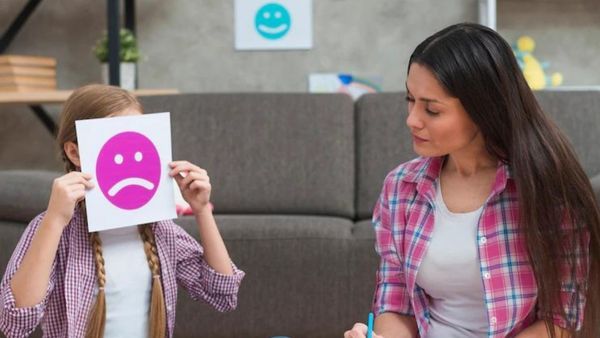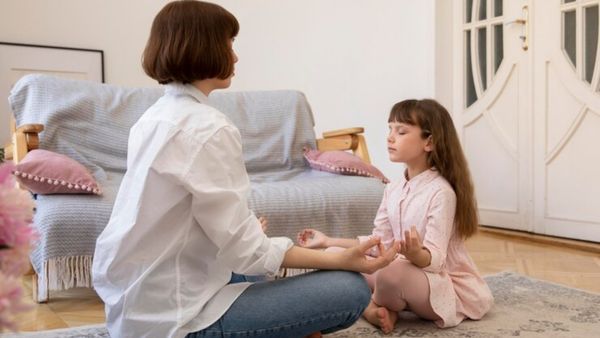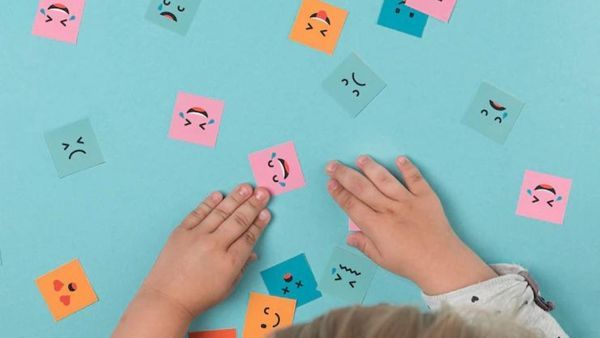Just In
- 47 min ago

- 4 hrs ago

- 8 hrs ago

- 11 hrs ago

Don't Miss
- Sports
 LSG vs CSK: MS Dhoni Record vs LSG - How the Chennai Super Kings Stalwart has Fared against Lucknow Super Giants?
LSG vs CSK: MS Dhoni Record vs LSG - How the Chennai Super Kings Stalwart has Fared against Lucknow Super Giants? - Education
 Karnataka SSLC Result 2024 Soon, Know How to Check Through Website, SMS and Digilocker
Karnataka SSLC Result 2024 Soon, Know How to Check Through Website, SMS and Digilocker - Movies
 Masaba Gupta Expecting First Child With Hubby Satyadeep Misra; Neena Gupta Shares Excitement In VIRAL Post
Masaba Gupta Expecting First Child With Hubby Satyadeep Misra; Neena Gupta Shares Excitement In VIRAL Post - Finance
 7:1 Bonus, Rs 778.75/Sh Dividend In 20 Yrs: Infosys To Offer Massive Rewards, Up Next Rs 28/Sh Payout Soon
7:1 Bonus, Rs 778.75/Sh Dividend In 20 Yrs: Infosys To Offer Massive Rewards, Up Next Rs 28/Sh Payout Soon - News
 Social Media Users Laud Gujarat Titans' Fangirl, Call Her Ana de Armas' Lookalike
Social Media Users Laud Gujarat Titans' Fangirl, Call Her Ana de Armas' Lookalike - Technology
 Nothing Ear, Ear a With ANC, Up to 42.5 Hours of Battery Launched; Check Price and Availability
Nothing Ear, Ear a With ANC, Up to 42.5 Hours of Battery Launched; Check Price and Availability - Automobiles
 All About Electronic Stability Control ESC: Working & Advantages
All About Electronic Stability Control ESC: Working & Advantages - Travel
Telangana's Waterfall: A Serene Escape Into Nature's Marvels
New Year 2023: Parenting Resolutions For Kids With Mental Health Issues
A survey conducted by UNICEF in 2021 with 20,000 children and adults in 21 countries found that children in India seem reluctant to seek mental health treatment. India's young people between 15 and 24 years of age expressed only 41 per cent support for mental health problems, compared to the average of 83 percent across 21 countries [1].

Only a minority of young people in Indian society believed that people experiencing mental health issues should seek help. Across all other countries, a majority of young people believed that reaching out to others was the best way to cope with mental health challenges.
There is a large spectrum of physical factors that may contribute to the development of mental disorders, including heredity and brain chemistry.

Mental Health And Indian Children
Identifying mental disorders in children can be difficult for guardians and health care providers. As a child grows and develops, he or she experiences many physical, mental, and emotional changes, which differ from adult development. Moreover, they learn to cope, adapt, and interact with others and their environment [3].
The majority of Indian children with mental health disorders do not receive a diagnosis and are reluctant to seek treatment or assistance. A study published in the Indian Journal of Psychiatry in 2019 reported that 50 million Indian children were affected by mental health issues even before the pandemic; 80 to 90 per cent did not seek treatment [4][5].
Despite these disparities, India spends only 0.05 per cent of its health budget on mental health annually, according to the Indian Journal of Psychiatry 2017 [6].

Parental Resolutions To Combat Mental Health Issues In Children
Children's physical health and development depend on their mental and psychological well-being. As parents, let us make a commitment on this New Year's day to help children cope with stress by providing them with appropriate coping mechanisms.
Here are a few tips on parenting resolutions for children with mental health issues.
The most common mental disorders diagnosed in children and adolescents are ADHD, anxiety problems, behavioural problems, and depression. ADHD is the most prevalent neuro-behavioural disorder in children and adolescents, with prevalence levels ranging from 5 per cent to 12 per cent in developed countries [7].
Throughout this article, we will discuss Parental Resolutions To Combat Mental Health Issues In Children, which refer to anxiety, behavioural problems, and depression.

Tips For Parents To Combat Mental Health Issues In Children
1. Come up with joint resolutions
The experts suggest that you sit down with your children and discuss with them possible goals they would like to set as their New Year's resolutions. If it's too overwhelming, simply discuss them as goals.
2. Observing sudden changes in behaviour
There are several red flags that may indicate a child needs support, including sudden changes in behaviour such as being isolated from friends and family, not following routines, or withdrawing from activities that a child normally enjoys [8].
3. Communication that is healthy and open
In order to be a responsive parent, you need to communicate well with your child. Listen patiently to what they are trying to say and assure them that you will always be there to support them if they encounter difficulties.
4. Take action to demonstrate your love and support
You can never love your child too much, only do (or give) things in the name of love, such as overprotection, indulgence, leniency, and low expectations. When these things are given in place of true love, then you have spoiled children [9].
5. Assisting them in becoming more organized
As a result of day-to-day schedules and the pressure that comes with performance, children often suffer from high levels of stress and anxiety. Help them to become more organized by following daily routines, and encourage them to live an active lifestyle [10].
6. Model the right coping mechanisms
The way in which a parent handles their emotions is continuously observed by their children. In order to de-stress ourselves, we often engage in activities such as deep breathing, coloring, painting, taking a walk, or listening to music. To help our children cope with stress and strengthen their life skills, we can introduce similar strategies to them.
7. Positive feedback and encouragement
The goal is to motivate them to repeat the right behaviour. It is equally important to make sure that your child feels loved and supported, and to provide a safe environment in which to develop their resilience.
8. Engage in play therapy
Taking part in group activities such as games and singing and dancing reduces stress, develops emotional and social skills, helps build confidence, and provides opportunities for learning and social interaction [11].

On A Final Note...
Every child is different, so you will need to employ different parenting tips because one-size-fits-all strategies do not work. There may be some children who are tough and stubborn, while others may be resilient and prevail despite how hard their parents treat them.
The
importance
of
providing
a
supportive
and
loving
environment
where
children
can
express
themselves
can
not
be
overstated.
There
is
a
need
for
mental
health
conversations
to
be
normalised
amongst
teachers,
parents,
and
social
groups.
It
is
crucial
that
we
as
parents
put
mental
health
at
the
top
of
our
priorities
so
that
our
children
can
live
a
happier
and
fuller
life.
When your child's behaviour persists for more than a few weeks, causes distress for your child or your family, or interferes with your child's functioning at school, at home, or with friends, consider seeking help. Immediately seek help if your child is acting unsafely, or talks about hurting themselves or others.
It is therefore possible to effectively treat many mental disorders using medication, psychotherapy, or a combination of the two [2].
-
 pregnancy parentingWhat Are The 4 Must Have Vitamins For Kids With Diabetes?
pregnancy parentingWhat Are The 4 Must Have Vitamins For Kids With Diabetes? -
 pregnancy parentingStates On High Alert As China Grapples With Respiratory Infections: Symptoms, Do’s And Don’ts
pregnancy parentingStates On High Alert As China Grapples With Respiratory Infections: Symptoms, Do’s And Don’ts -
 healthBust Bloating: 5 Exercises Every Teenage Girl Needs For A Happy Tummy
healthBust Bloating: 5 Exercises Every Teenage Girl Needs For A Happy Tummy -
 pregnancy parentingIncreasing Reports Of STIs In Children: Tips for Parents on Educating Kids about STI Prevention
pregnancy parentingIncreasing Reports Of STIs In Children: Tips for Parents on Educating Kids about STI Prevention -
 pregnancy parentingAre You The Second Favourite Parent To Your Kid? Signs To Watch Out For
pregnancy parentingAre You The Second Favourite Parent To Your Kid? Signs To Watch Out For -
 pregnancy parentingWorld Toilet Day: 5 Ways To Teach Healthy Bathroom Habits In Kids
pregnancy parentingWorld Toilet Day: 5 Ways To Teach Healthy Bathroom Habits In Kids -
 healthAre You Really “Super Smart,” But Just Don’t Know It Yet? 4 Signs You Have A High IQ
healthAre You Really “Super Smart,” But Just Don’t Know It Yet? 4 Signs You Have A High IQ -
 pregnancy parentingTwo Wombs, Four Hearts: US Mom's Extraordinary Double Uterus Pregnancy
pregnancy parentingTwo Wombs, Four Hearts: US Mom's Extraordinary Double Uterus Pregnancy -
 pregnancy parentingChildren's Day 2023: A Glimpse Into Education Abroad: Perspectives From Indian Parents In Canada, Australia..
pregnancy parentingChildren's Day 2023: A Glimpse Into Education Abroad: Perspectives From Indian Parents In Canada, Australia.. -
 pregnancy parentingWhat Are The Mandatory Vaccines For Children In India?
pregnancy parentingWhat Are The Mandatory Vaccines For Children In India? -
 pregnancy parentingWorld Pneumonia Day: Risk Factors Of Pneumonia In Children
pregnancy parentingWorld Pneumonia Day: Risk Factors Of Pneumonia In Children -
 pregnancy parentingChildren’s Day: 5 Books You Can Introduce To Kids Above 10 Yrs
pregnancy parentingChildren’s Day: 5 Books You Can Introduce To Kids Above 10 Yrs


 Click it and Unblock the Notifications
Click it and Unblock the Notifications



